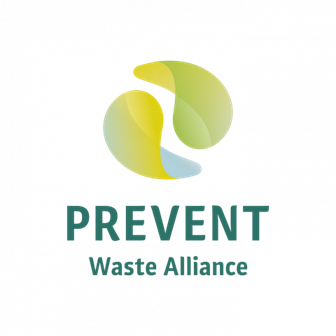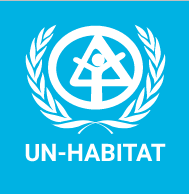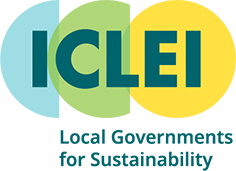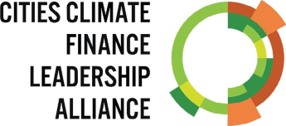TRANSITIONS in Action
With our vision of cities with a high quality of life for everyone in mind, we continue to work together with partner countries on the sustainable development of our key urban sectors: construction, mobility, water, as well as waste and circular economy.
In doing so, we follow the principle of “leave no one behind” and “leave no place behind”: no person, no neighbourhood in a city and no place worldwide should be left behind. Everyone should participate in a Just Transition. We are building on previous successes – check out our initiatives and those of our partners here.

City WORKS
Localising Global Agendas
City WORKS is a web-based toolkit designed to support the implementation of global agendas at the local level. Helping cities prepare, plan and implement actions, the tools are designed to be easily integrated into cities’ typical planning cycles.
True to the motto of leaving no one and no place behind, City WORKS actively involves all relevant stakeholders within a city and provides a global community for exchange.
City Climate Finance Gap Fund
BMZ builds enabling environments for financing sustainable urban development. This includes political reform processes for fiscal decentralisation, strengthening local financial management and supporting project preparation, for examples through the Cities Climate Finance Gap Fund: In an environment where resources and expertise are limited, the Gap Fund supports cities and municipalities in developing and prioritising climate-friendly plans and investments with the aim of mobilising more funding and support for implementation.
The Gap Fund is aiming for a minimum of 100 million Euros in total funding. This is expected to mobilise more than 4 billion Euros in investments for urban climate action. BMZ contributes to the Gap Fund, that is implemented by the World Bank Group and the European Investment Bank together with GIZ.
C40 Cities Finance Facility
The C40 Cities Finance Facility (CFF) works with partners to help cities in the Global South develop financing solutions for finance-ready infrastructure projects that contribute to a green and equitable transformation.
Furthermore, the CFF aims to strengthen project preparation capacities in city administrations so partner cities can independently scale up and replicate successfully financed projects, thereby promoting global systemic change in urban infrastructure.

CitiesCHALLENGE
The Cities CHALLENGE ideas competition, tests innovative solutions for sustainable urban planning and building.
Within the competition, so-called Urban Living Labs—small-scale interventions at neighbourhood-level—were chosen in the context of multi-actor partnerships to achieve global agendas and development goals. They contribute to the creation of climate-adapted, connected, and liveable neighbourhoods in their cities.
Transformative Urban Mobility Initiative
The Transformative Urban Mobility Initiative (TUMI) supports climate-friendly, inclusive, safe and affordable mobility in cities.
TUMI’s visions are thriving cities with enhanced economic, social and environmental performances in line with the New Urban Agenda, the Agenda 2030 and the Paris Agreement.

PREVENT Waste Alliance
Together for a circular economy
The PREVENT Waste Alliance connects organisations from the private sector, academia, civil society and public institutions worldwide to advance the circular economy in low- and middle-income countries by minimising waste, eliminating pollutants and maximising the reuse of resources in the economy.
Cities Alliance
Cities Alliance (CA) is a global partnership and multi-actor network that aims to reduce urban poverty and promote the role of cities in sustainable development.
To manage its activities, the Cities Alliance operates a multi-donor fund with UNOPS as host and Trustee. Members of CA provide strategic direction, contribute to the financing of the Fund, and engage in advocacy and operational activities to realise sustainable development.

UN-HABITAT
As the official focal point of the UN system for urban development, UN-Habitat is mandated to guide the development discourse through normative initiatives, implement innovative projects in member countries and coordinates the work of UN agencies in the field of sustainable urban development and urbanisation.

ICLEI
Local Governments for Sustainability (ICLEI) is a global association of more than 2500 cities, municipalities and counties in over 125 countries committed to sustainable development.
The ICLEI Strategy 2018-2024 primarily addresses the fields of action low emissions, circular economy, nature-based solutions, resilience and inclusion, placing the people in the cities at the centre.

UN environment programme
The United Nations Environment Programme (UNEP) works with governments, civil society, the private sector and UN entities to address environmental challenges. It helps countries transition to low-carbon and resource-efficient economies, by strengthening environmental governance and law, safeguarding ecosystems, and providing evidence-based data to inform policy decisions.

The United Nations Innovation Technology Accelerator for Cities
The United Nations Innovation Technology Accelerator for Cities (UNITAC) Hamburg is a collaboration between Hamburg HafenCity University and UN-Habitat, supported by the United Nations Office of Information and Communications Technology (UN-OICT). The aim of the new laboratory is to develop and test innovative and technological solutions to address urban challenges.

Cities Climate Finance Leadership Alliance
The Cities Climate Finance Leadership Alliance (CCFLA) promotes collaboration, exchange and ongoing dialogue on subnational climate finance. To address existing gaps in climate finance, CCFLA provides a platform for actors to gather and exchange knowledge. The Alliance unites members like states, city networks, financial institutions, and other actors such as OECD, UN Habitat, GCF, GIZ and GIF.
Urban Innovation made in Africa
Sustainable Planning and Construction
“Urban Innovation made in Africa” focuses on integrated approaches to sustainable, climate-friendly, and pro-poor urban planning and construction. In Germany, the project supports the departmental dialogue between the development (BMZ), climate (BMWK) and urban (BMWSB) ministries. In the BMZ partner country Rwanda it establishes an Urban Lab, testing innovative ideas for sustainable planning and construction.
Resilient Cities Action Package 2021
For the Resilient Cities Action Package 2021 (ReCAP21), GIZ’s sector programme cities joined a partnership with ICLEI and the Cities Alliance. The aim of the programme was to support selected cities in Rwanda, Bangladesh and Mauritania in recovering from the pandemic while strengthening the cities’ resilience in the long term. Combining their approaches and methods in a Resilient Recovery Guide to develop common frameworks for resilient recovery.
